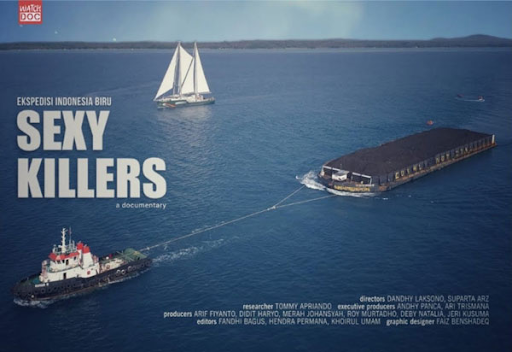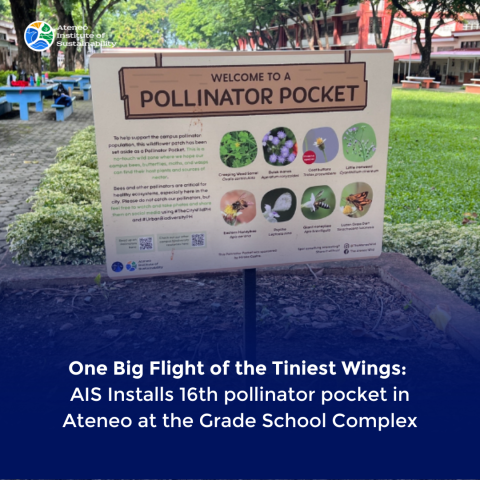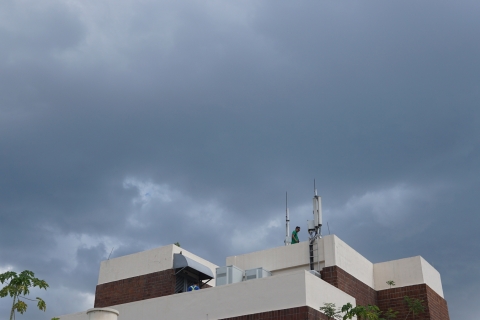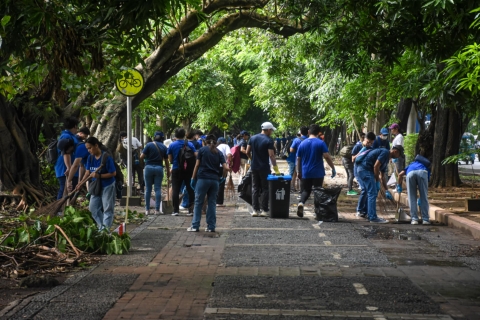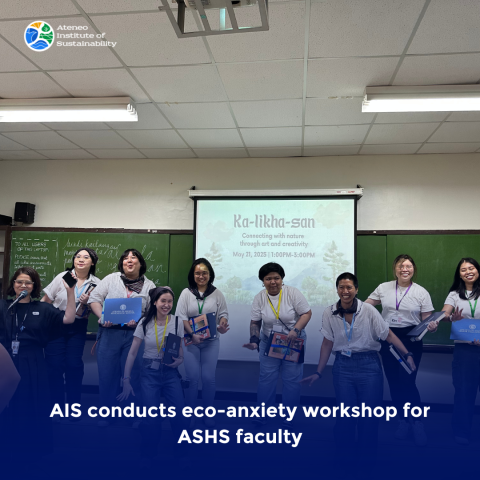The Blue Indonesian Expedition at a Glance
19 Aug 2019 | Dandhy Laksono (Journalist, member of the team Ekspedisi Indonesia Biru) Translated, with permission by the author, by Preciosa de Joya
On the morning of January 1st, 2015, two journalists, Dandhy Laksono (videographer) and Suparta Arz (photographer) embarked on a 365- day journey around Indonesia on their motorbikes. Their mission was to document the local wisdom embodied in people’s culture, social interactions, and economic practices, and report on a wide range of topics including biodiversity, energy issue, and food politics. Below are some of the ideas that inspired their journey.
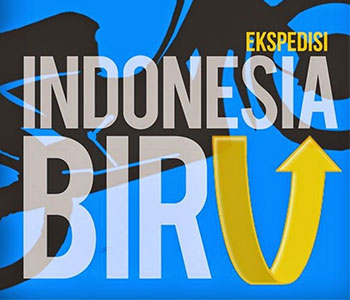
This expedition was given its name not because two thirds of Indonesia consists of the sea, or because it possesses a 52,000 km coastline, the second longest coastline after Canada. Or even because it would be connected to the maritime vision of the new president.
“Blue” is a social concept popularized by the Belgian intellectual Gunter Pauli, but which actually has long been flourishing in the Indonesian archipelago.
It appears that [Pauli] picked a color that would replace “Green Economy,” which, according to him, has become increasingly expensive. It is exactly these organic agricultural products or goods which are considered “green” or certified environment-friendly that has become unaffordable to most people.
Furthermore, in several cases, “green economy” creates new problems such as social conflict and conservation issues. Some examples include the story of the fisherman who was shot in the vicinity of the Komodo National Park or those who are criminalized because they collect crabs in Ujung Kulon National Park.
Moving beyond all this, blue economy encourages us to stop thinking about globalization, centralization and standardization, and to develop sources of local agency, break free from dependency, and change the rules of the game in various areas of our life.
The Miangas community, which could previously live on taro, were forced to be dependent on rice, the supply of which could cease just because of the big waves in the Sulawesi sea.
For as long as people follow the “rules of the game”– that a good house could only be a permanent, concrete building, to the point that the exploitation of the water sources of the Kendeng residents in building a cement factory becomes inevitable and its stock price increases–then there will always be losers and winners. Moreover, public policy has not always taken the side of the common people.
To change the “rules of the game” is to change a way of thinking that the people of Indonesia truly live on an earthquake zone, such that building a permanent concrete house could precisely become a killing machine. The demand for building materials more suitable than bamboo must increase, (materials) that are safer and do not sacrifice sources of water for the construction of a cement factory.
Another intellectual who inspired this journey was the English economist EF Schumacher who wrote “Small is Beautiful: A Study of Economics as if People Mattered,” which was published in 1973. Again, this idea has long existed in Indonesia, the idea to never concern oneself with all that is big, when the small and appropriate prove more useful. Starting a business, for example, must not be burdened by searching for loans or credit.
The Mangut Lele[i] eatery of Mr. Marto in Yogyakarta would not open a branch, even if his account surplus allows for it. Same goes for the Itiak Lado Mudo restaurant in Bukittinggi, Western Sumatra, which on the average has a revenue of 25 million rupiah a day.
Mr. Marto opens his shop house before lunch, and closes as soon as the food runs out. There are no second or third shifts in his kitchen. In Lumajang, Jawa Timur, a rujak cingur[ii] stall which closes after it sells sixty packets. It does not care if there’s still a queue of buyers.
There is no escalation of production or expansion to increase the power of supply to respond to increasing damand. There is no mass production, no burden of credit interest, and no labor issue.
These ideas are not anti-growth or -progress. But these ideas are clearly disliked by worshipers of globalization and big capital. Some (ideas) will be taken as heresy. Because the (Indonesian) Archipelago does keep a treasure of wisdom wrapped in myths and taboos. These ideas are part of the thinking, “take from nature what is necessary,” as what a community of turtle-eaters in Enggano island (Bengkulu) does during certain celebrations, or a community of whale hunters in Lamera (who takes only) for consumption.
Are they considered more cruel than the industry of palm oil or paper plantations, or the bottled drinking water providers and coal miners?
Another example comes from the Baduy people in Banten. They consider clearing of the forest a taboo: it is environmental conservation in the guise of sacred customs. Similarly, the people of Ciptegar do not market rice with a “mythological” reasoning that hides profound ideas concerning protection of food source.
This expedition would like to record and document all of this as part of the collective memory of the Indonesian nation. So that later, we and the new generations could learn. There is no need to always agree. But at least there could be a public conversation and material for new knowledge. If this is indeed the task of media and journalists, we ourselves don’t mind if our work is called “backpack journalism.”
Even if we can’t always do it consistently.
OUTPUT
Because of the belief in one’s own resources, we do not involve sponsors from any party, and only rely on savings and support from friends who help with accommodation and logistics throughout our travels. This is the work of gotong royong.[iii]
We began in Jakarta on January 1st, 2015 and returned on December 31st, 2015, with the production of six documentary films and six travel videos which can be accessed through the channel “Watchdoc Image” on Youtube. Of course that’s not all.
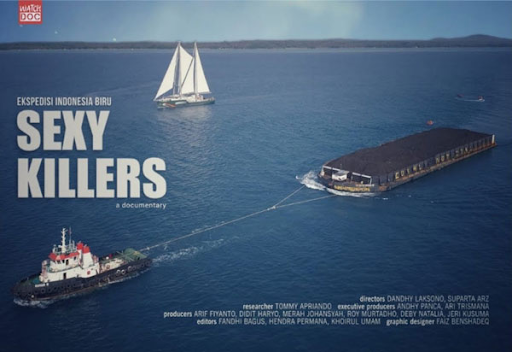
There is a 12 terrabyte video material and photo which will become part of shared knowledge, which in time will be published.
THE MEANING OF THE LOGO
The color blue describes the mission of the expedition. Blue is the Earth’s color as it appears from the outer space, a perspective from the universe. The earth is a planet that is self-sufficient. It can survive with what it has, and recycle this perpetually for the sustainability of life. It is sustainable or sustainable by default.
It is not a huge planet. Because scale is not needed in order to sustain life. So it must be the system of economy and production. It is precisely on the size of the planet Earth that life can occur. At least in our solar system.
The picture of the motorcycle shows how we did this expedition. It is taken from the silhouette of the 125 cc duck motorbike which we used, which came out in 2003 and 2005.
The thick U-shaped yellow line on the U-turn sign symbolizes the spirit of turning direction or the course of turning. “Change the rules of the game,” as Gunter Pauli said.
And we believe that the concept of development must be changed, so that we may inherit the philosophy of the blue planet called Earth.
The rotation/turning also shows the direction “North” in compass language. Taking from Pramoedya: Reverse Flow (or countering the current).
If you flip this symbol and double it (a matter of scale and accumulation), it will be similar to the the icon of fast food capitalism, and head towards the south of the equator.
[i] Lele is Indonesian for catfish.
[ii] Rujak cingur is a particular kind of rujak, a traditional salad dish in East Java which consists of slices of beef snout combined with cucumber, yam, young mangoes, pineapple, tofu, tempeh and other vegetables.
[iii] Gotong Royong is an Indonesian word that refers to the culture and cherished value of communal work. Here, people in a community work together and help each other to achieve a shared goal.
